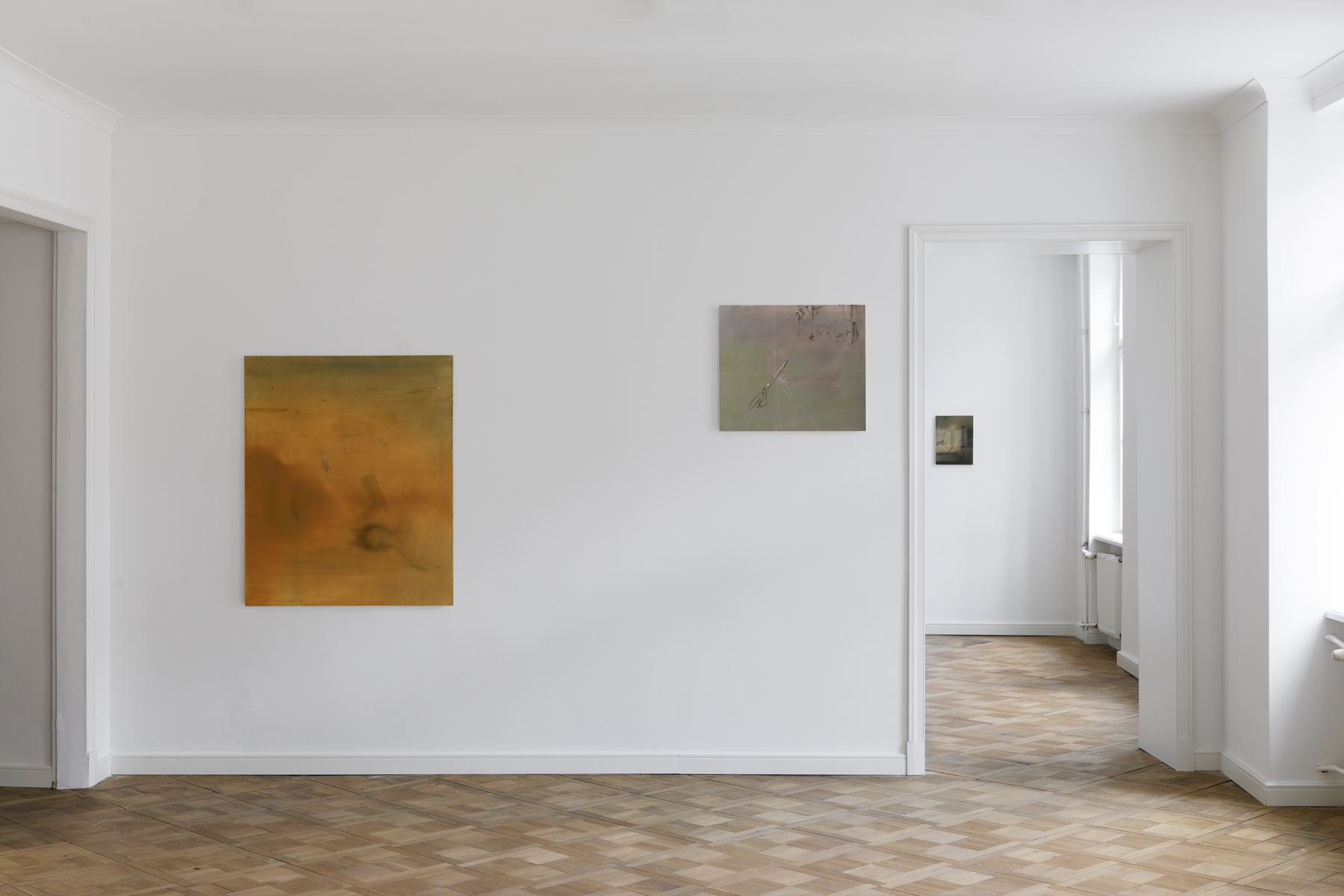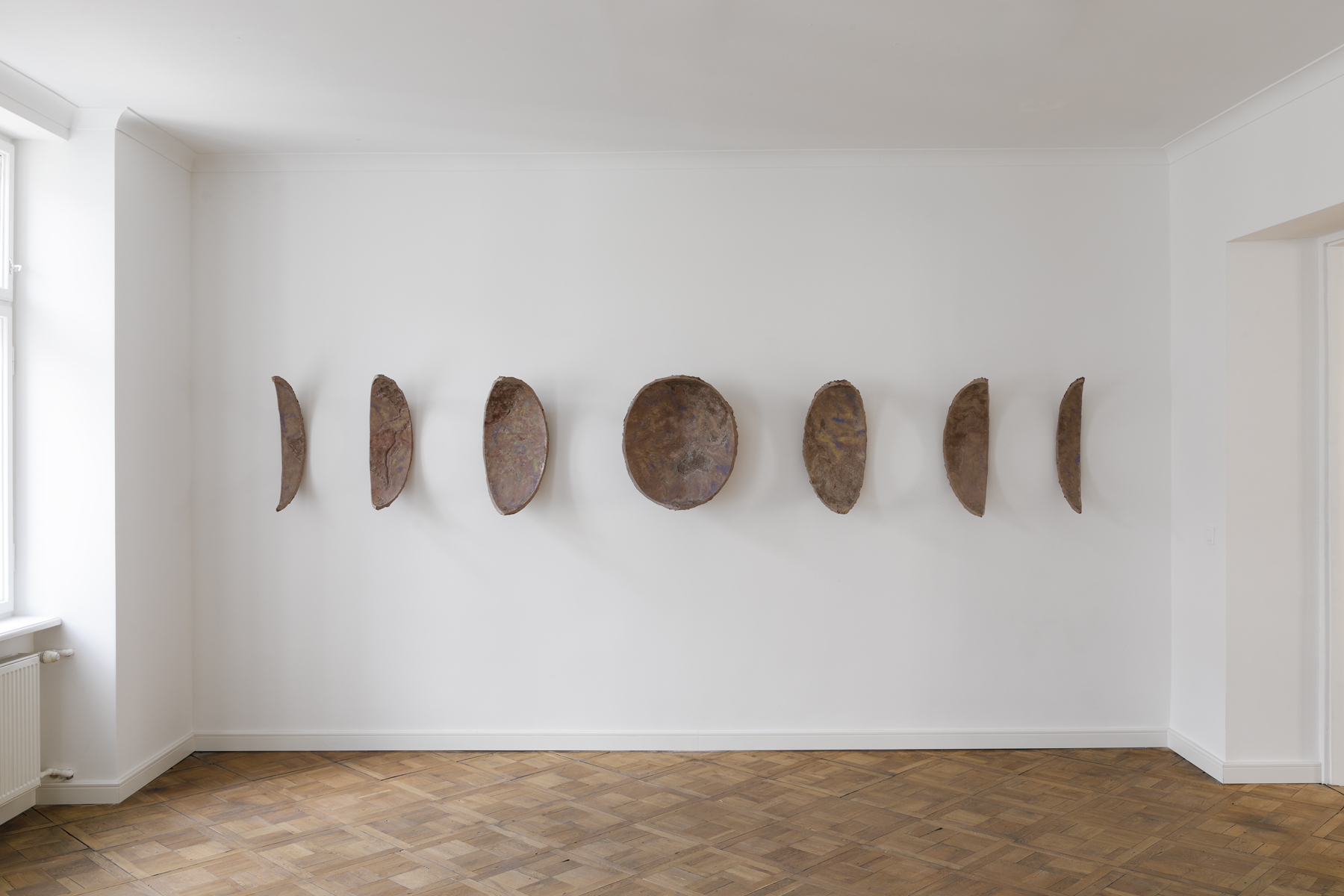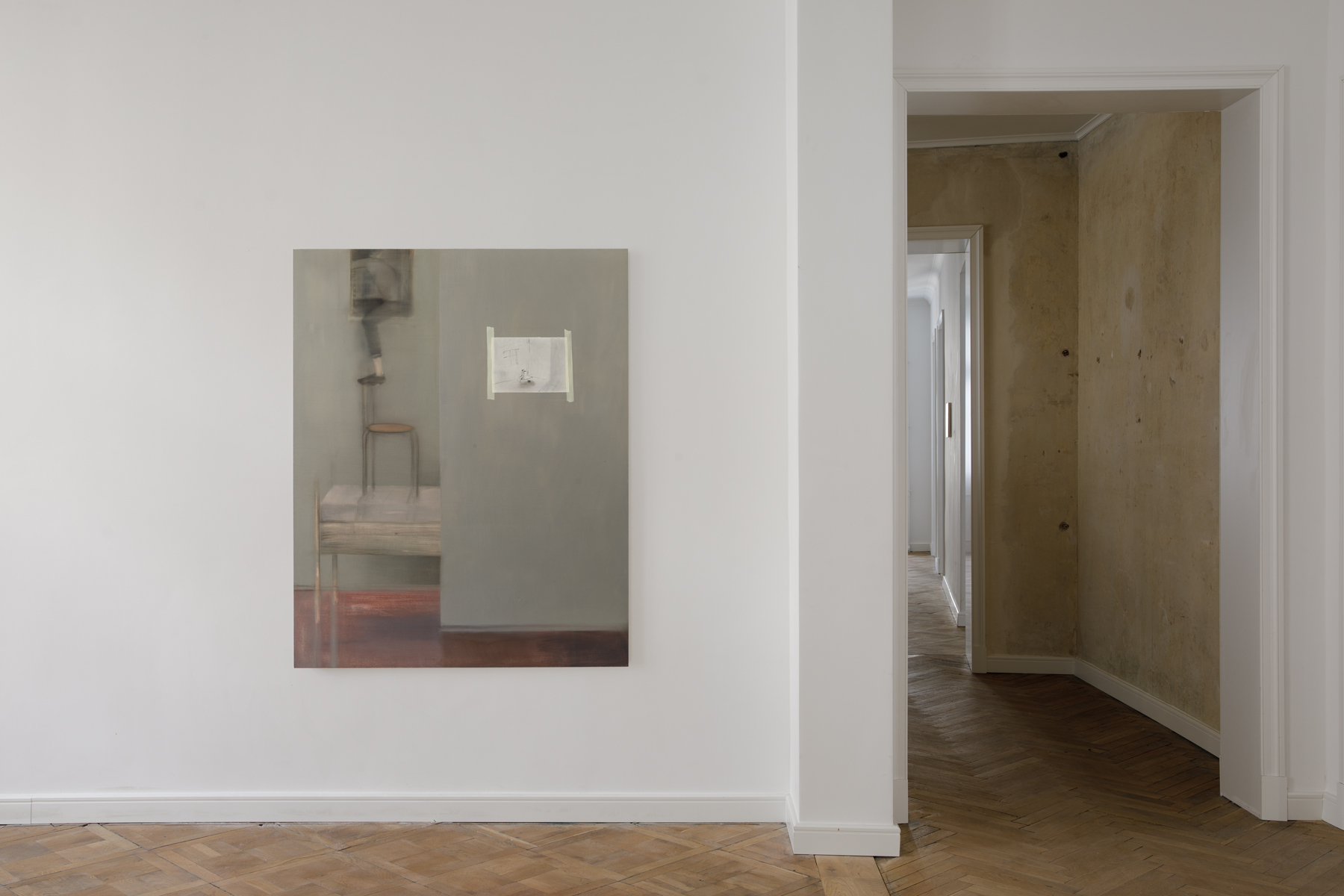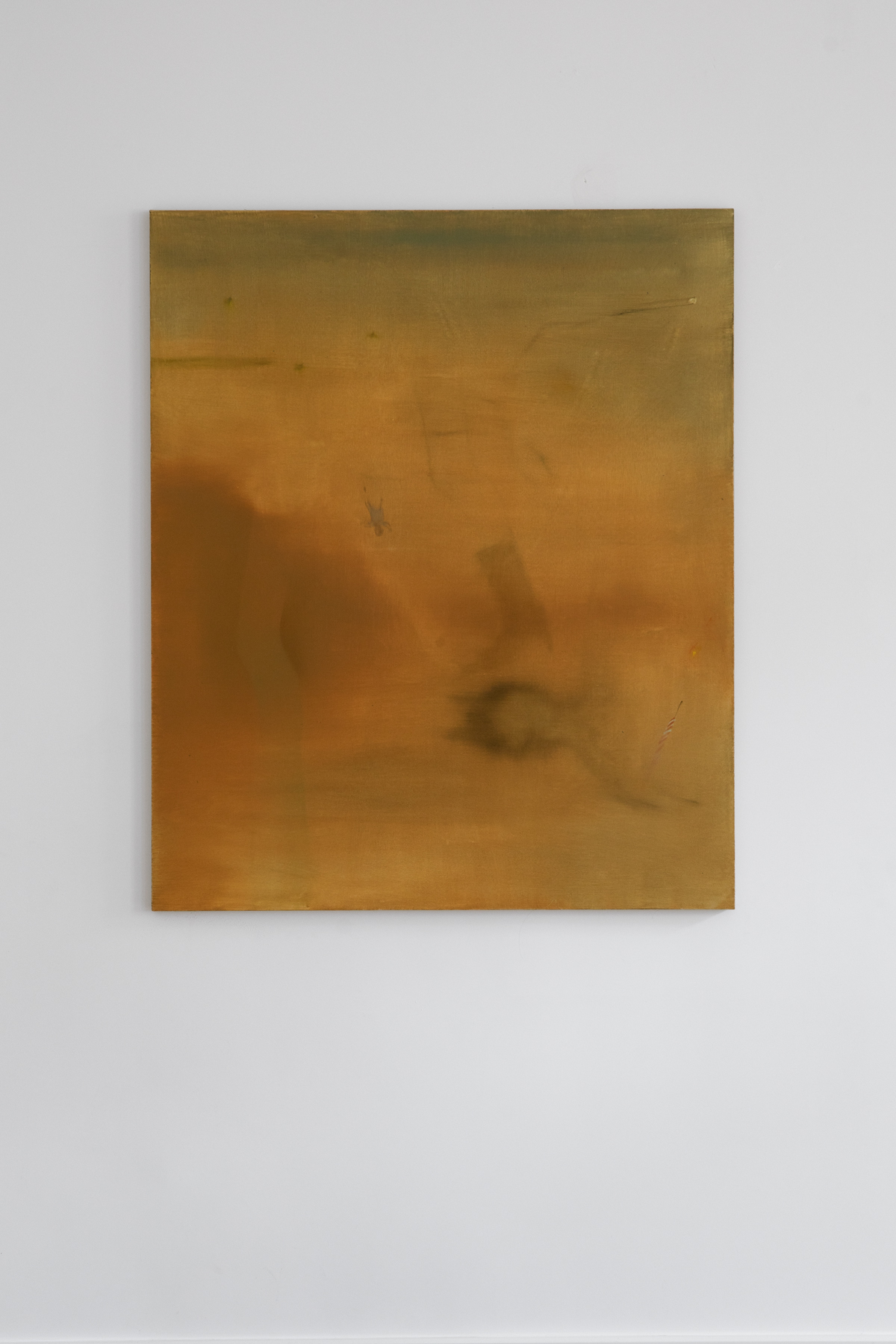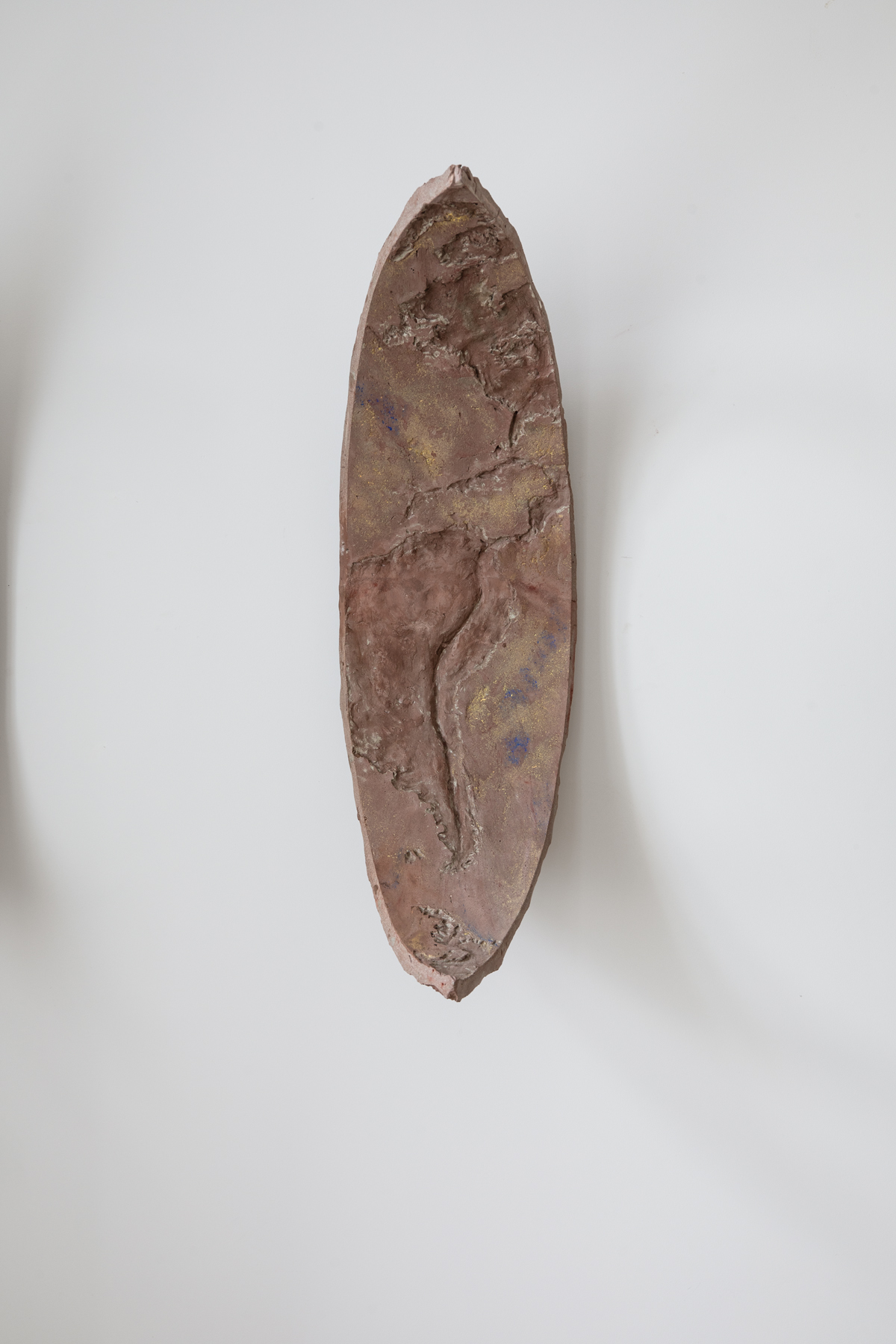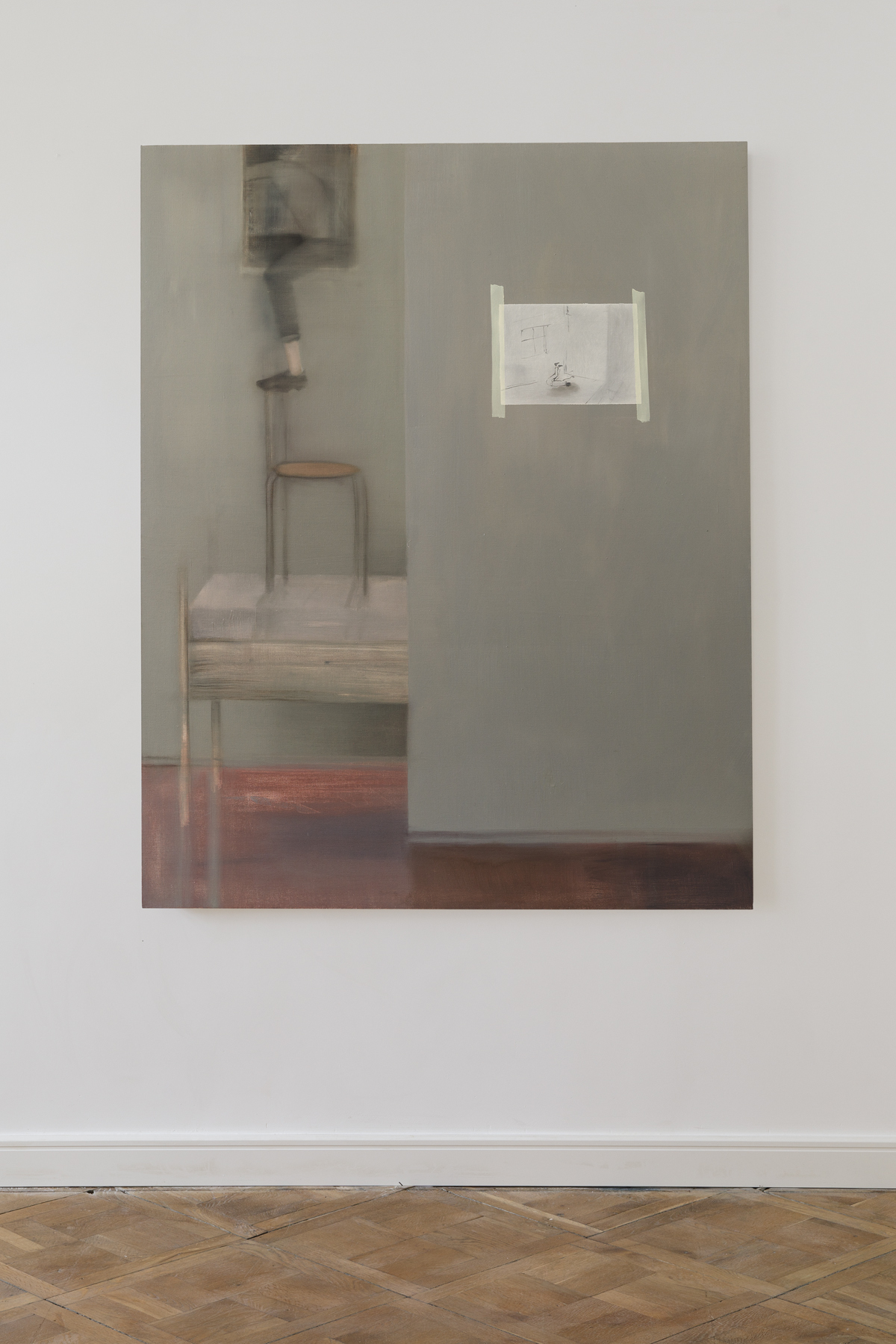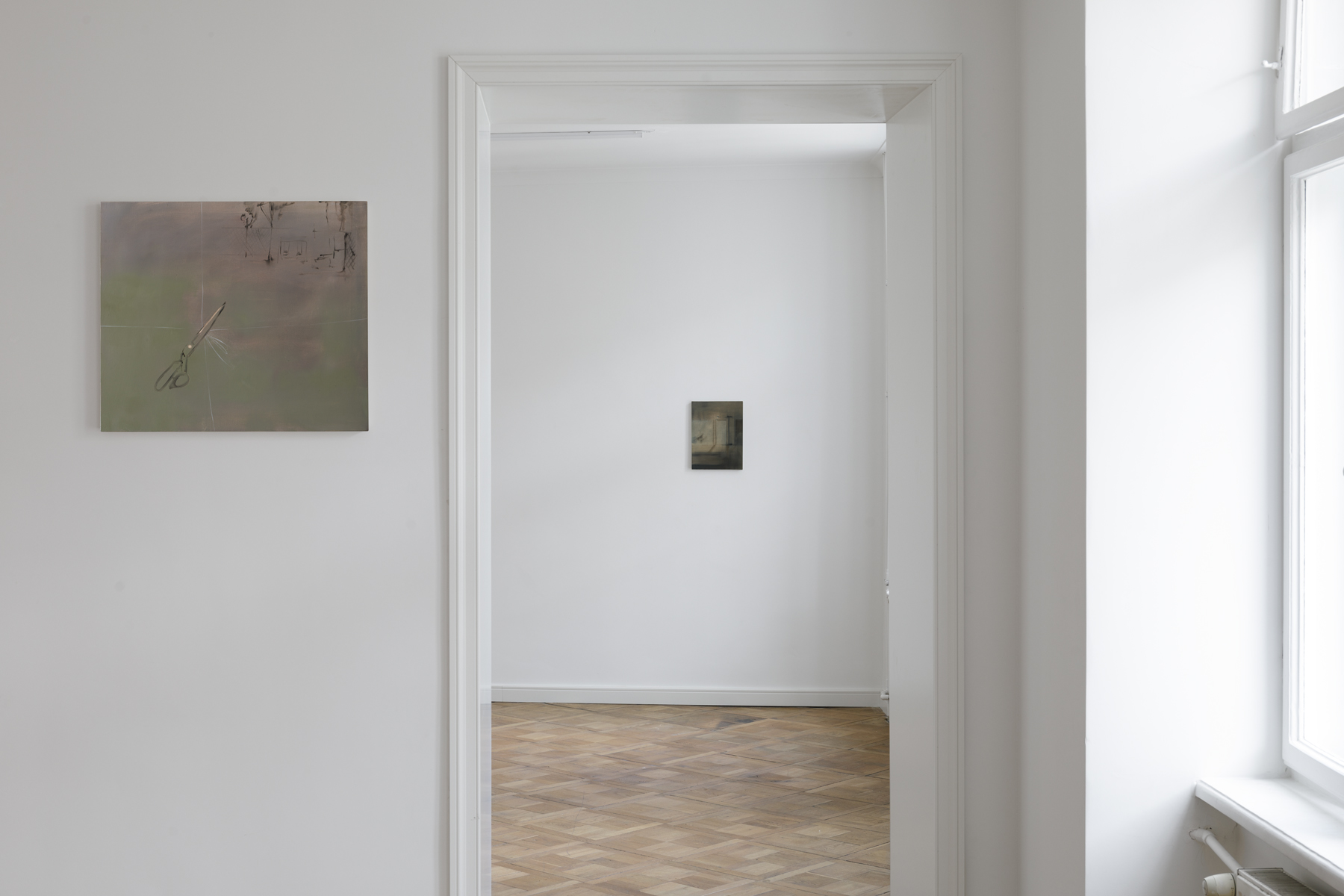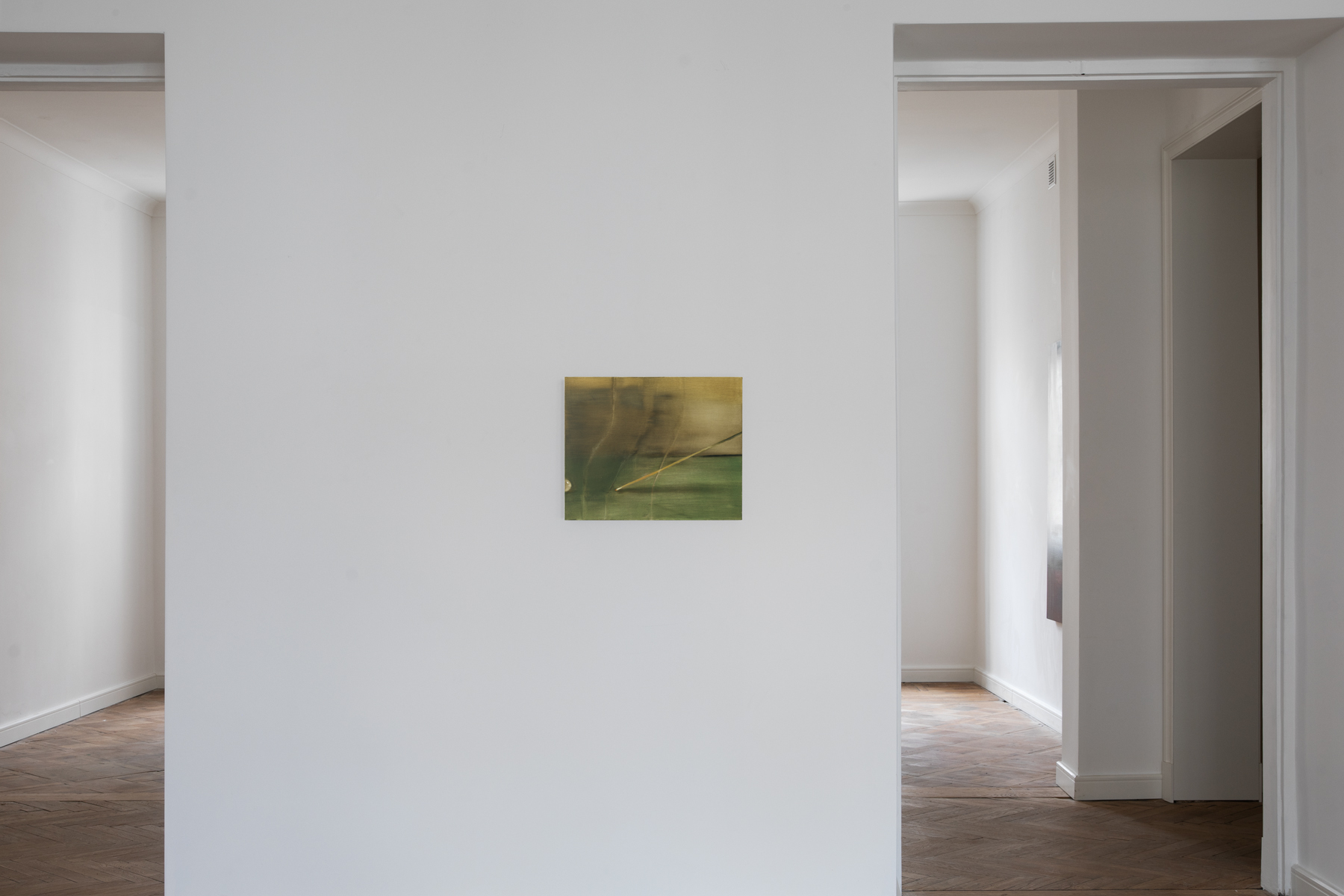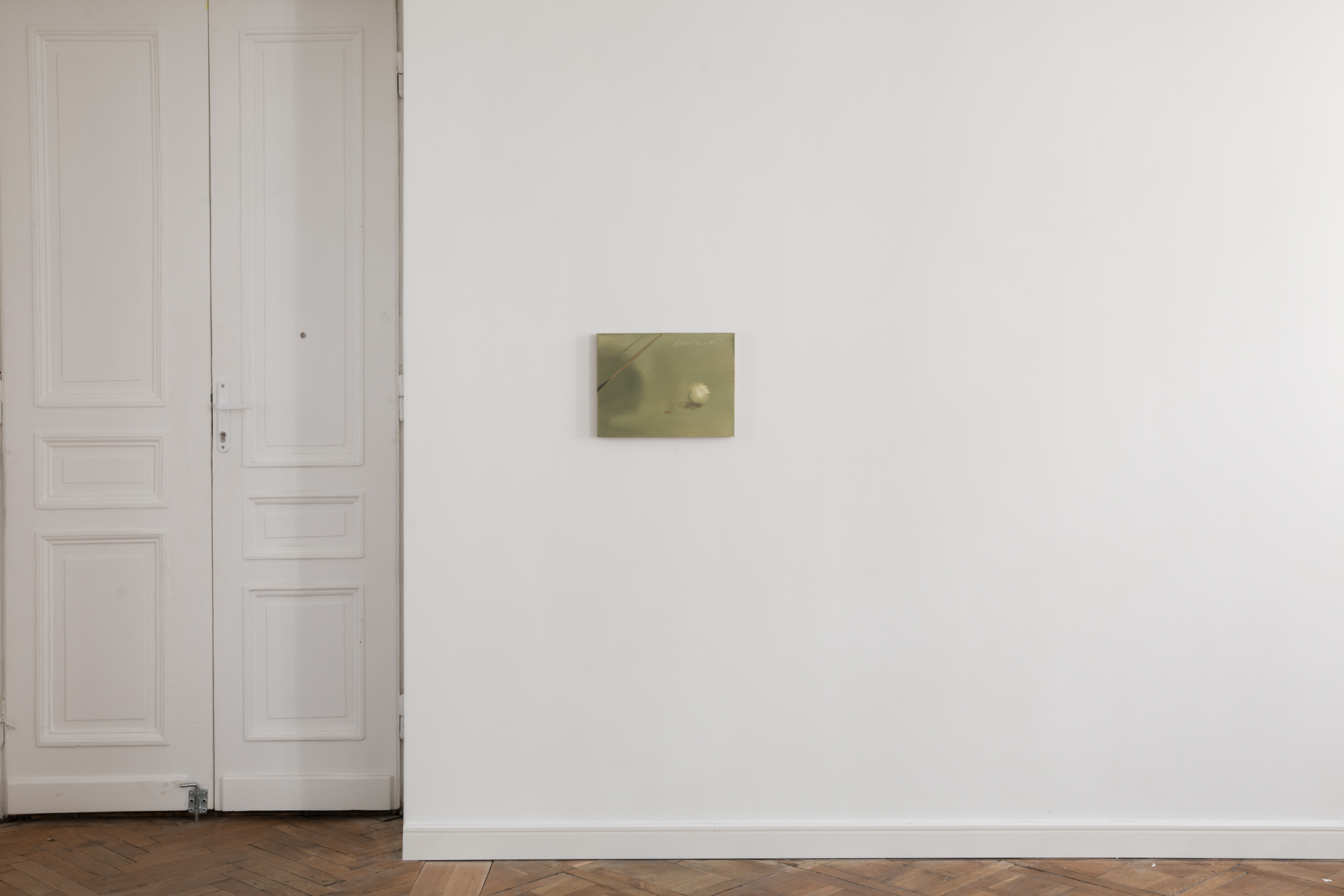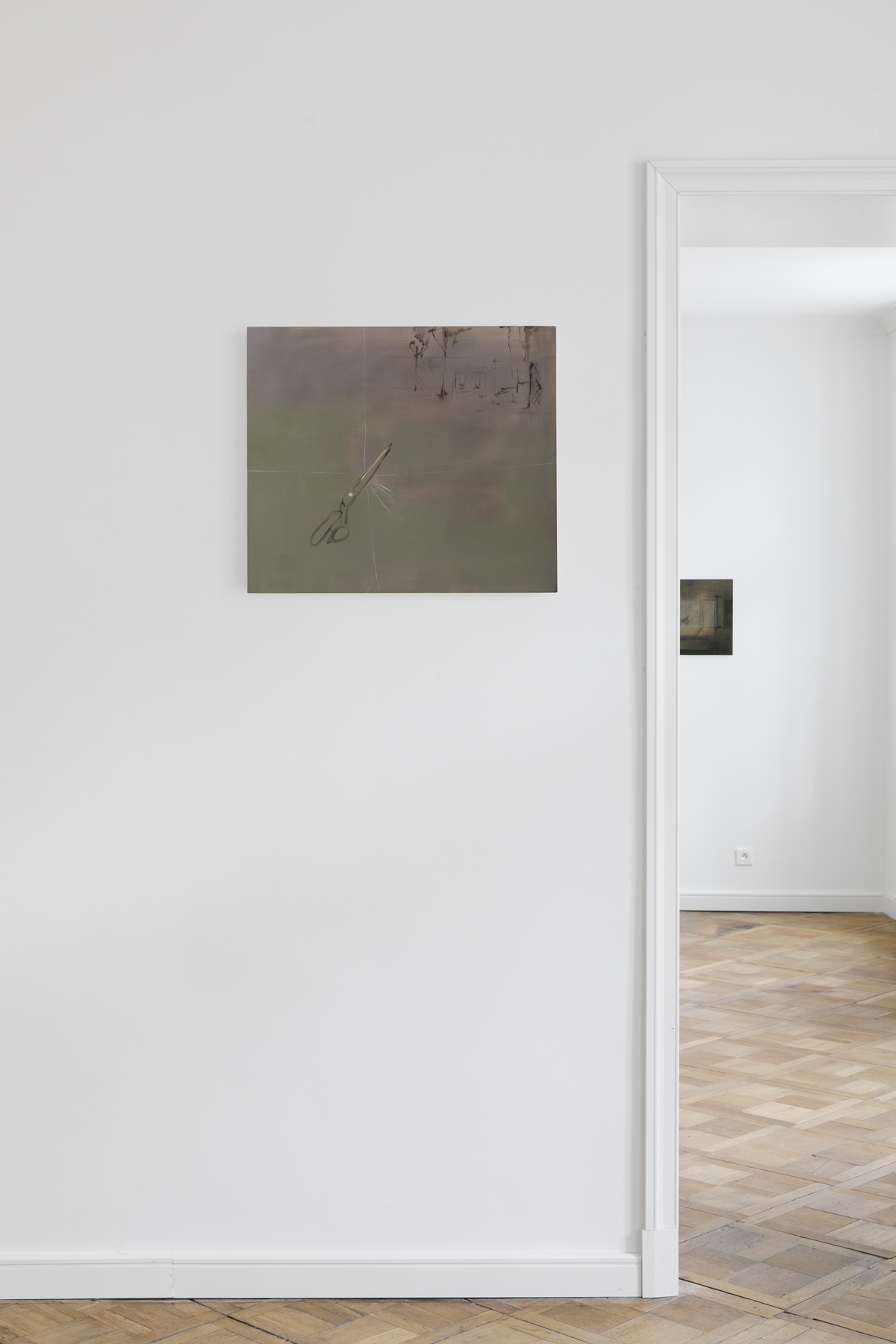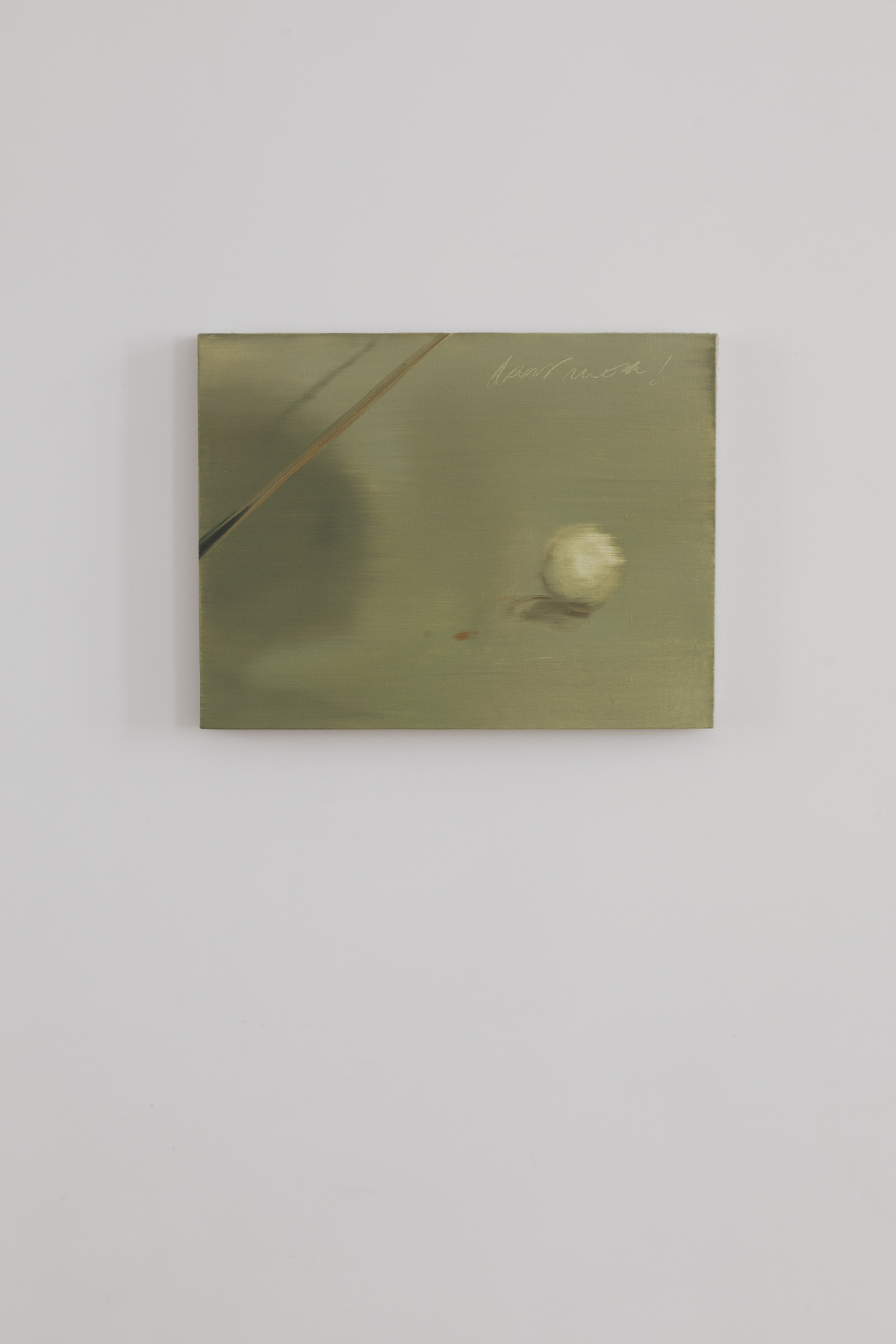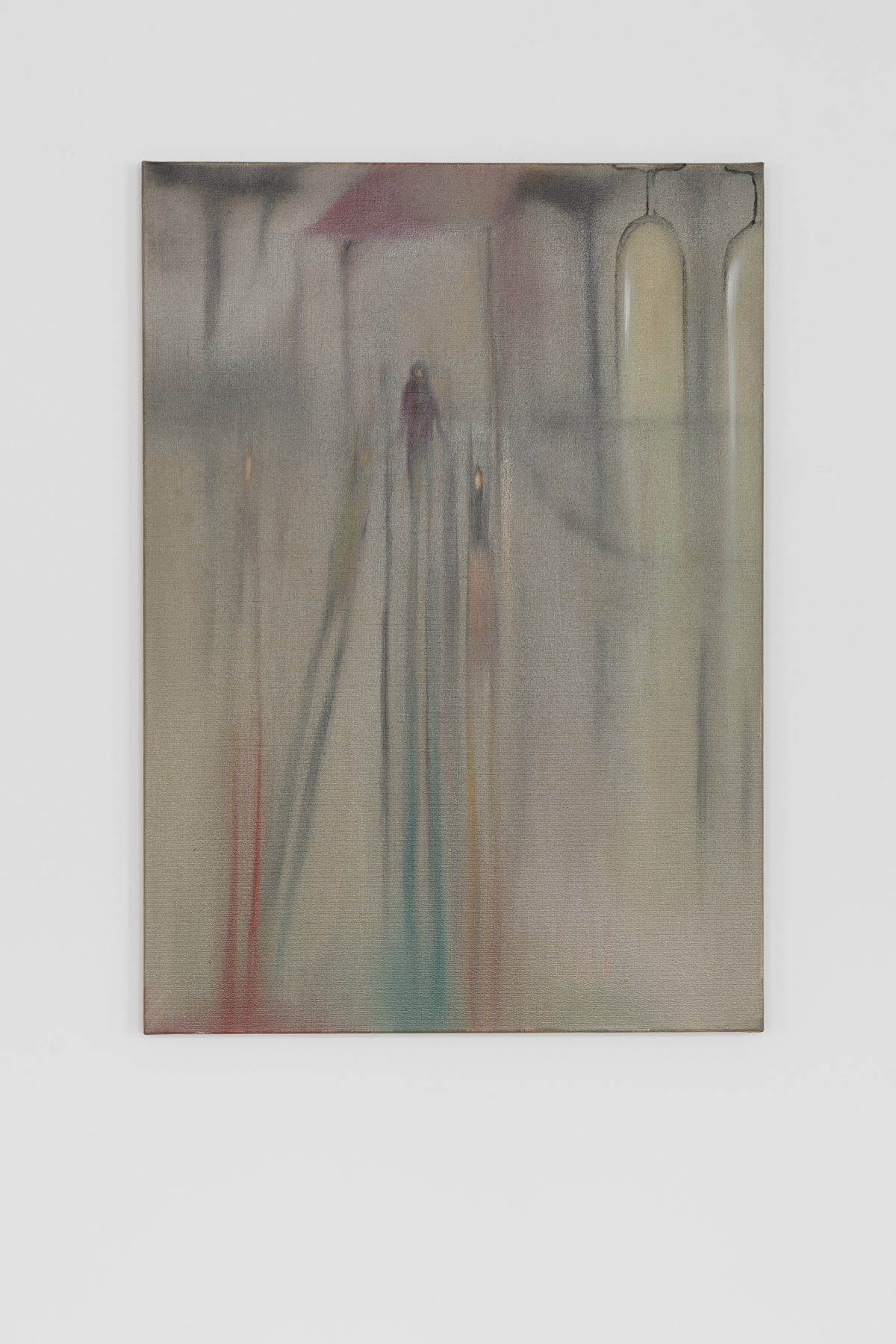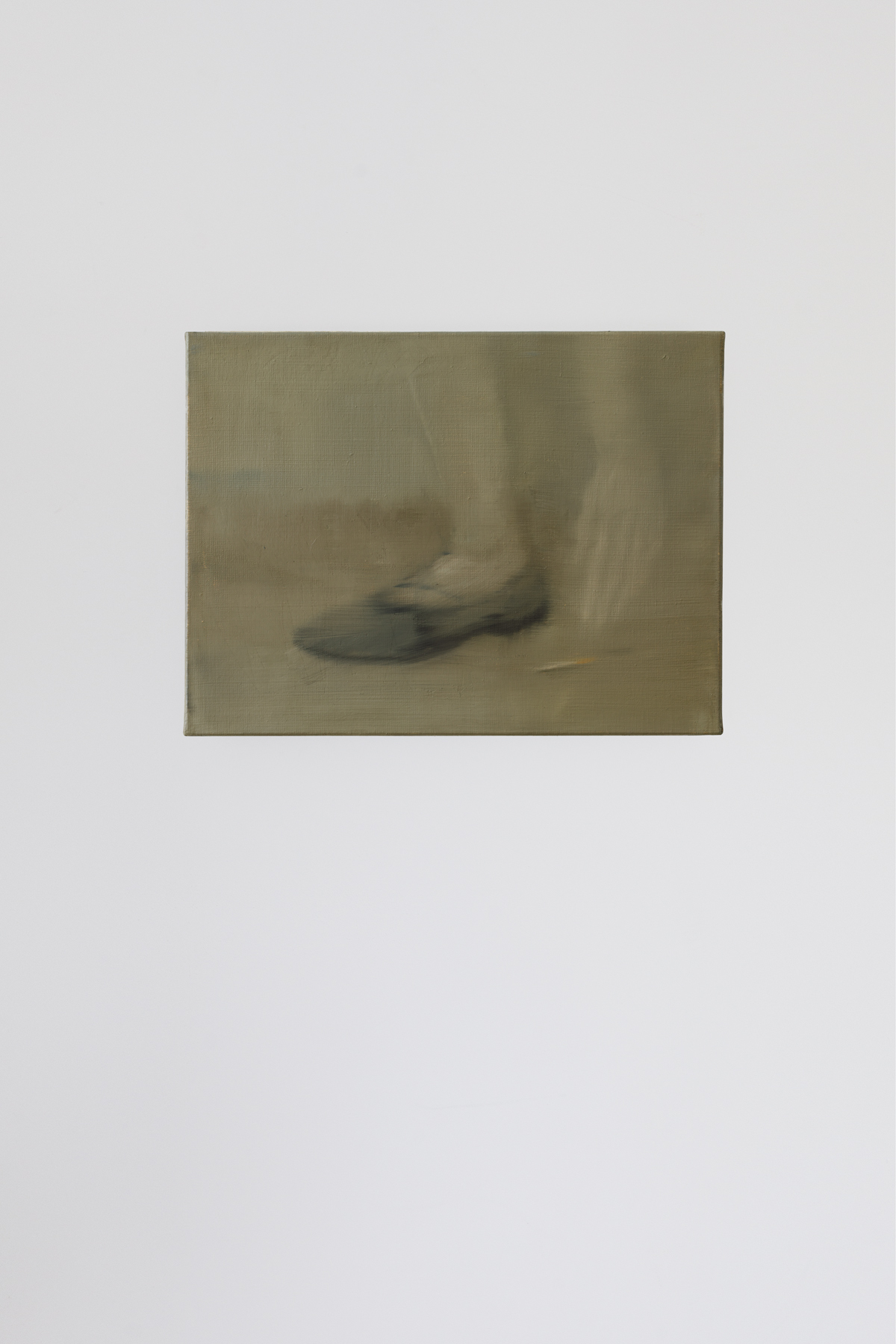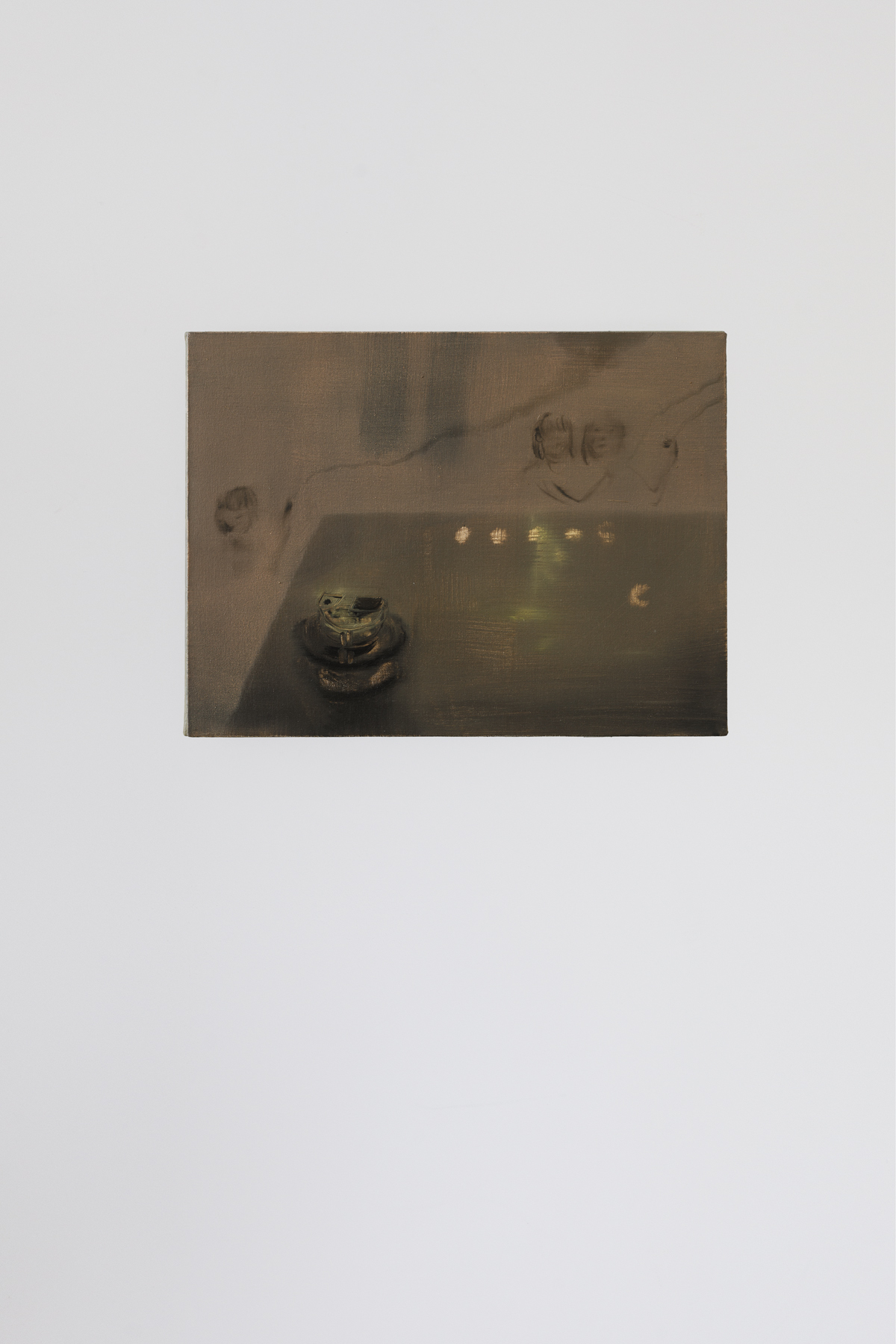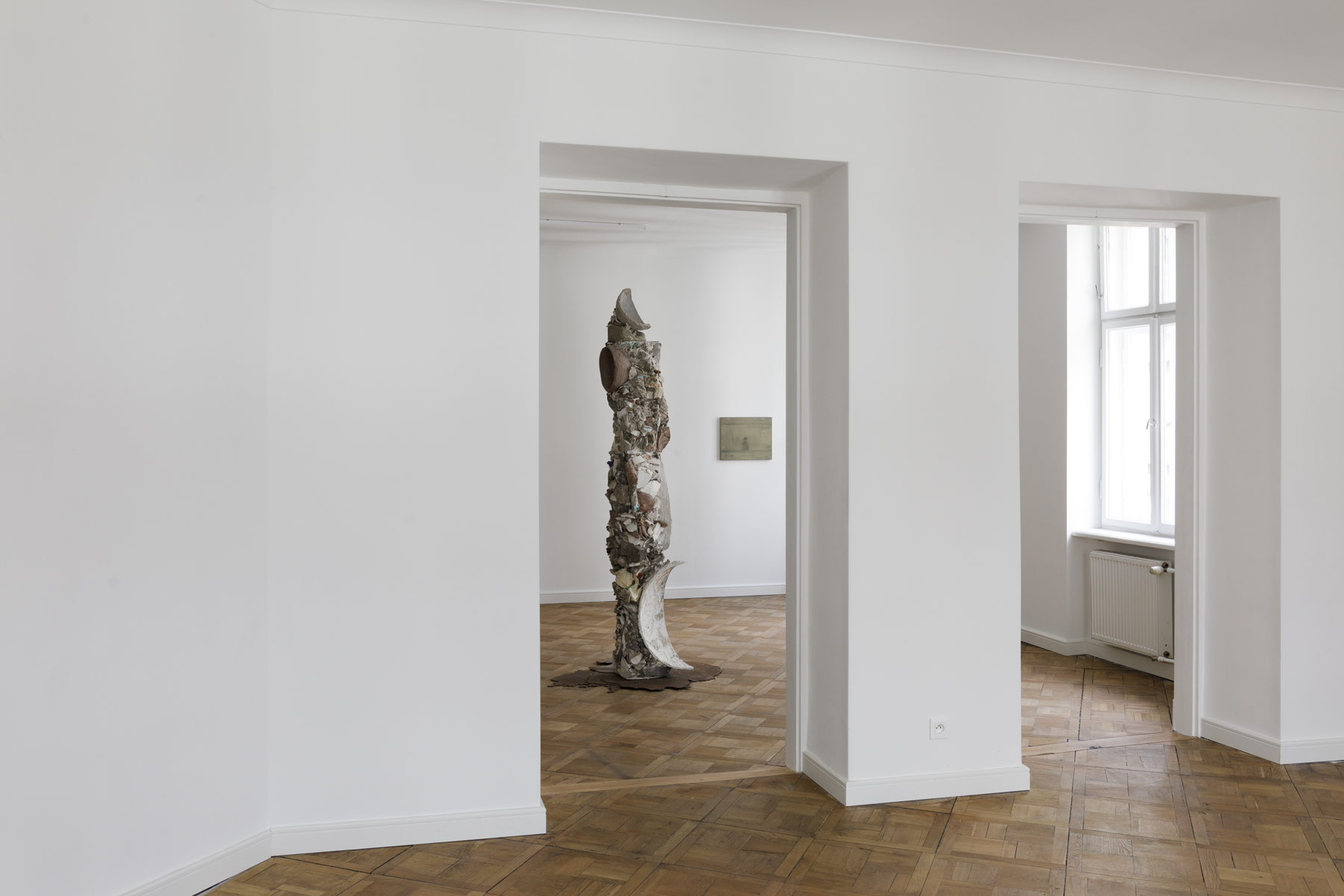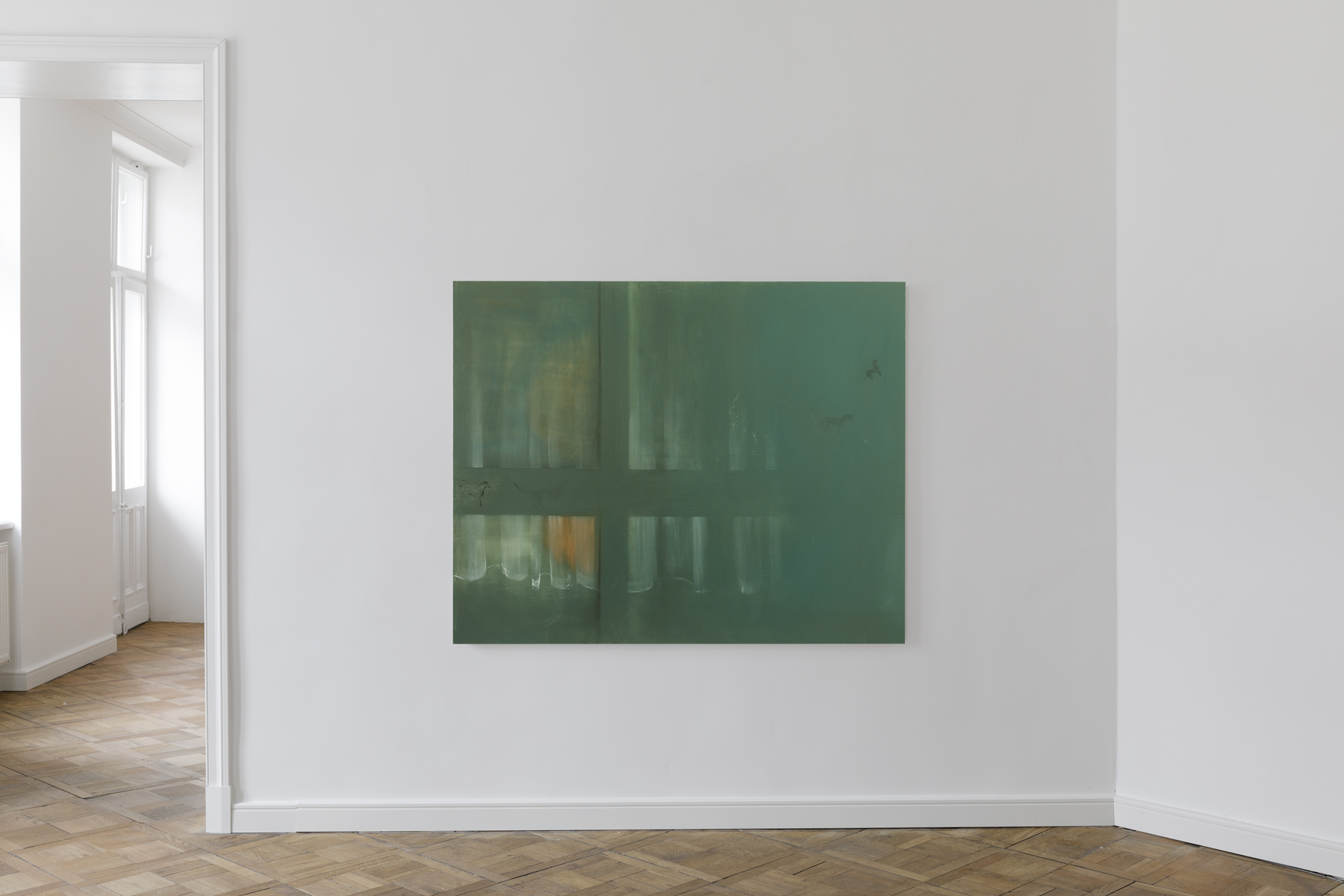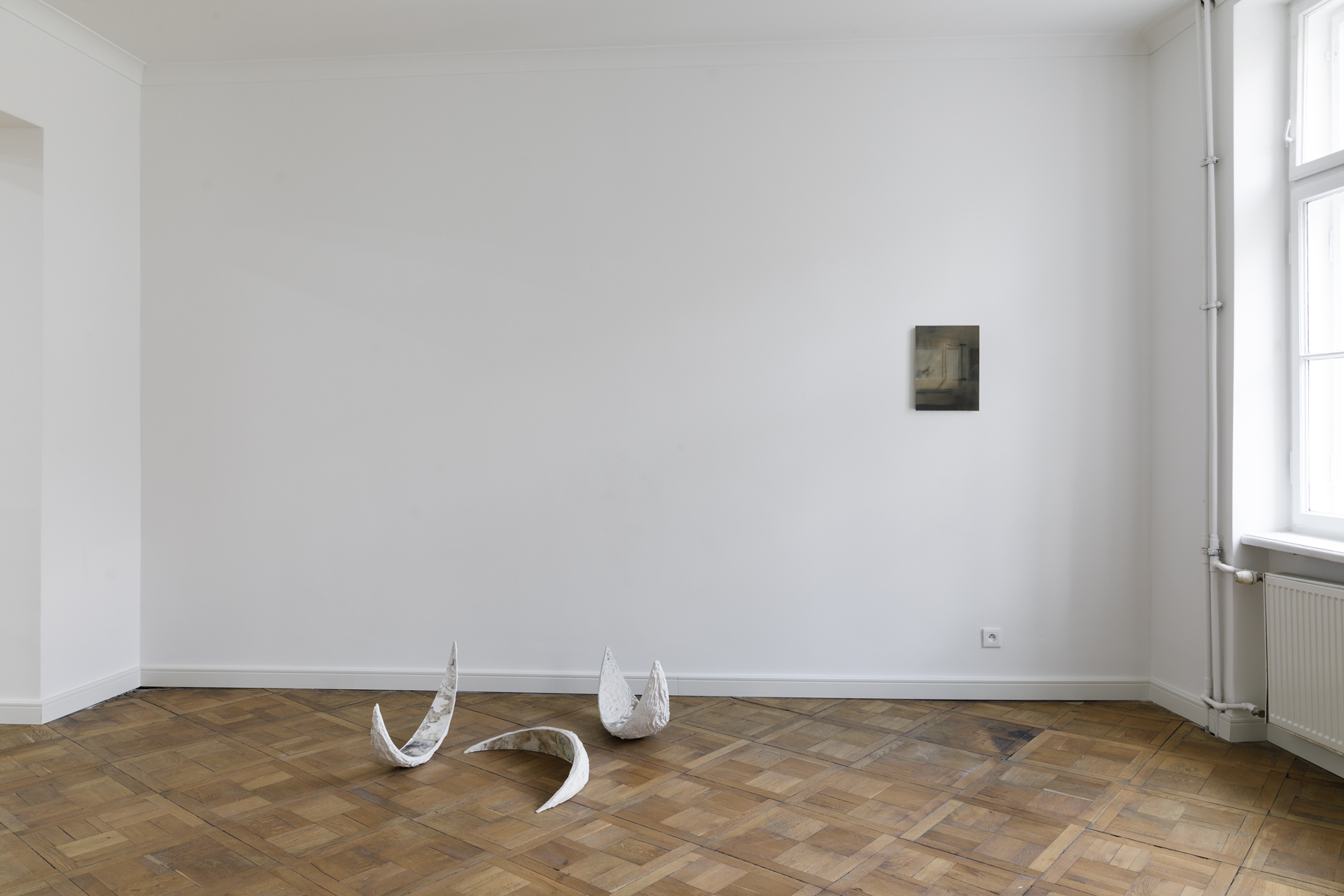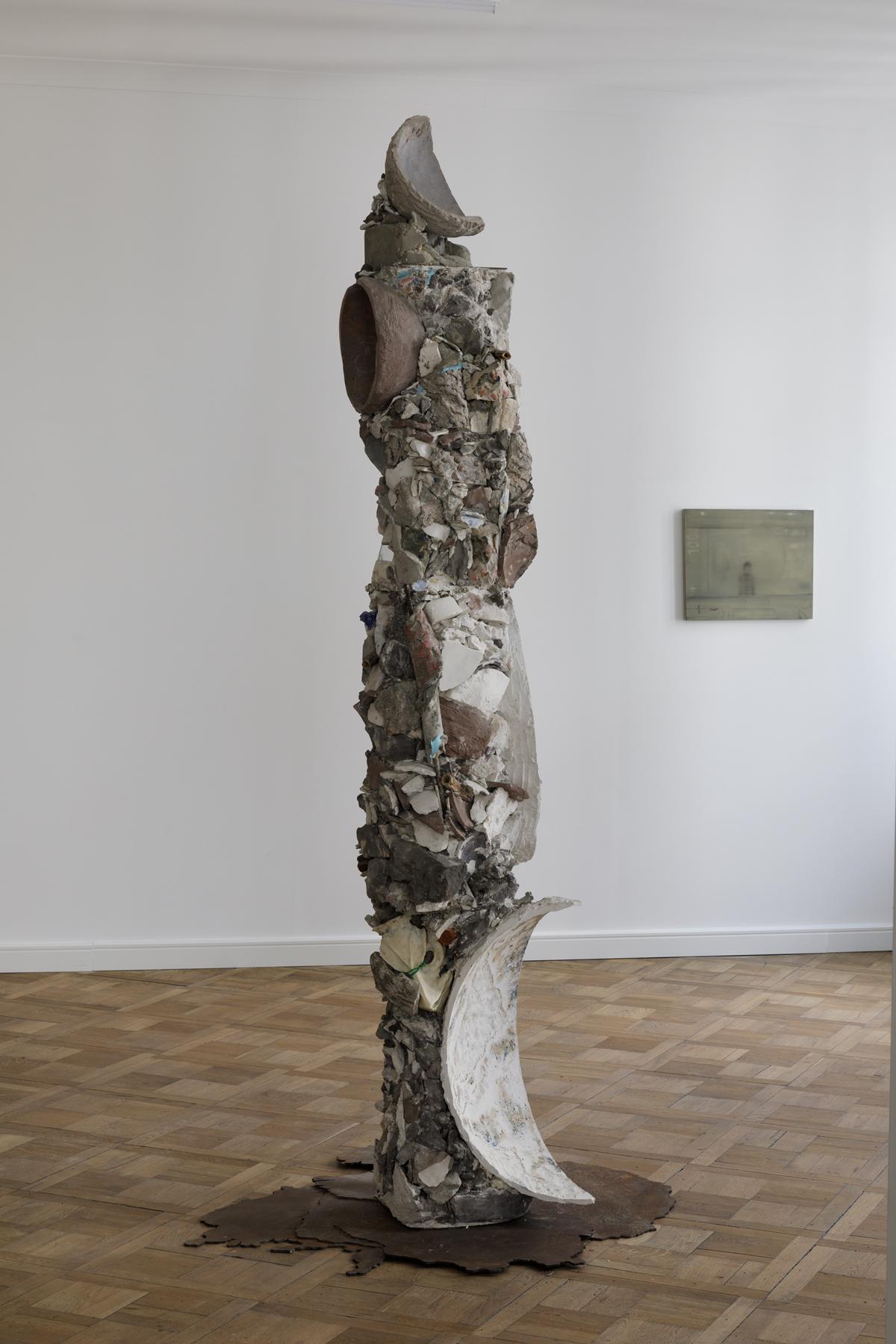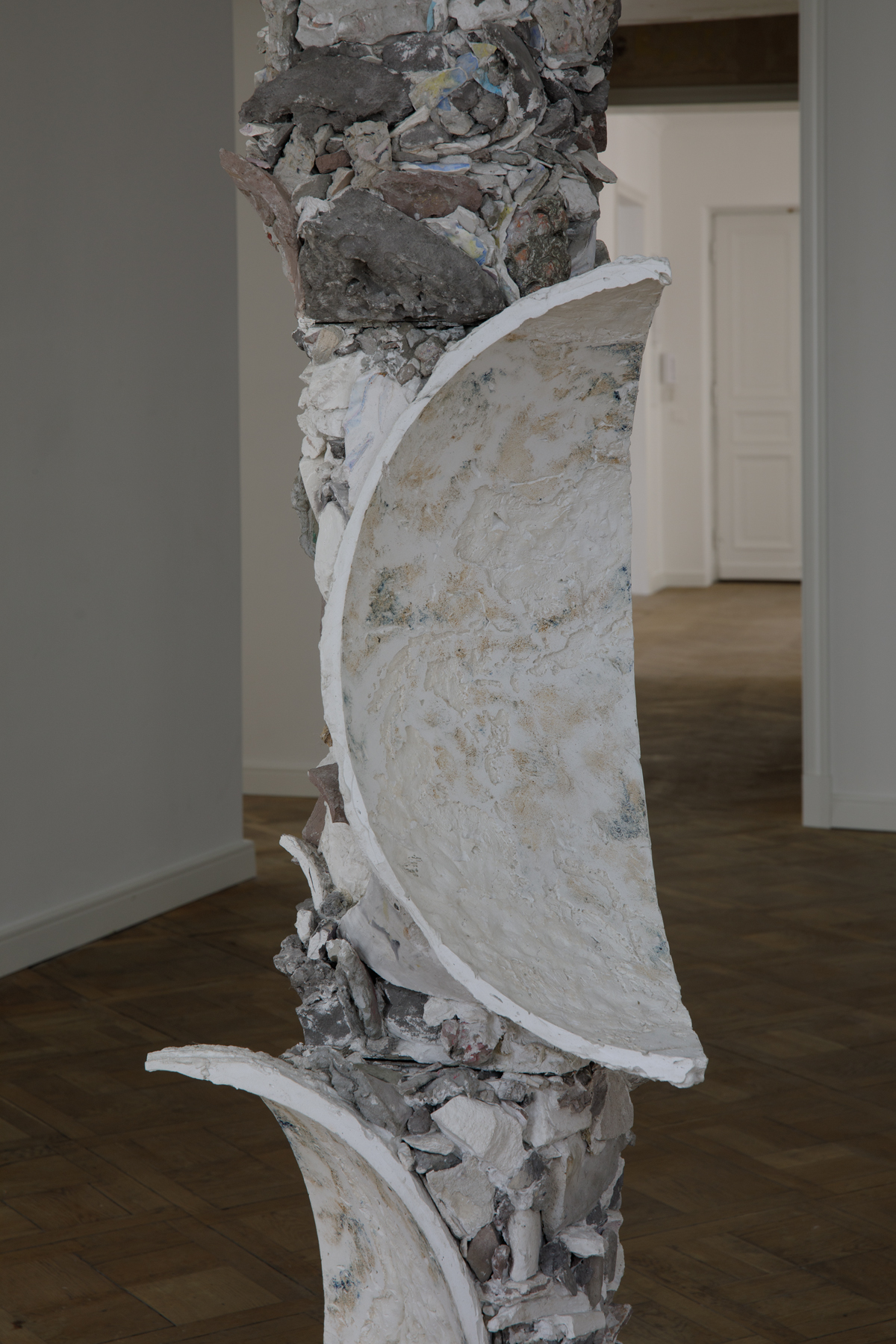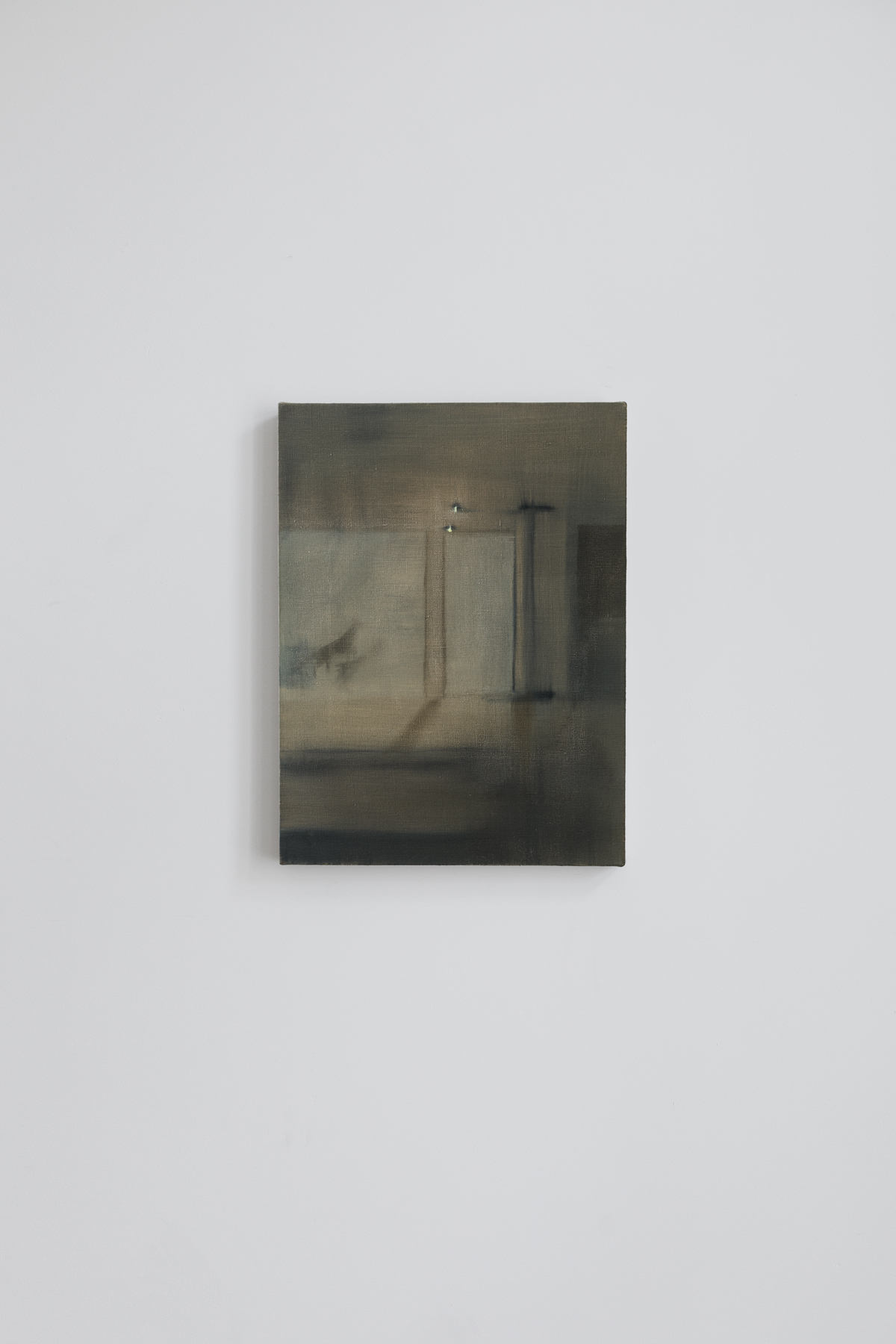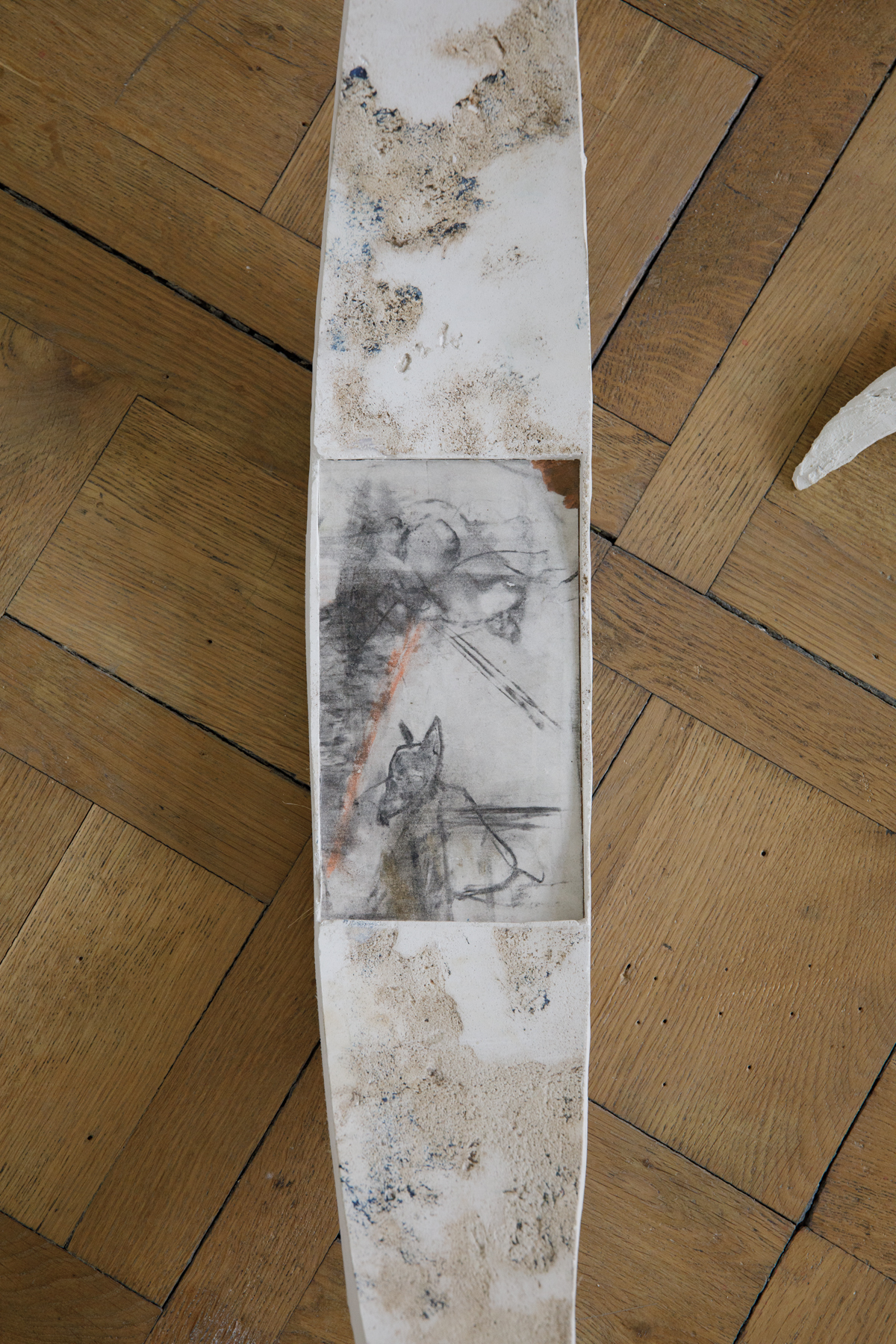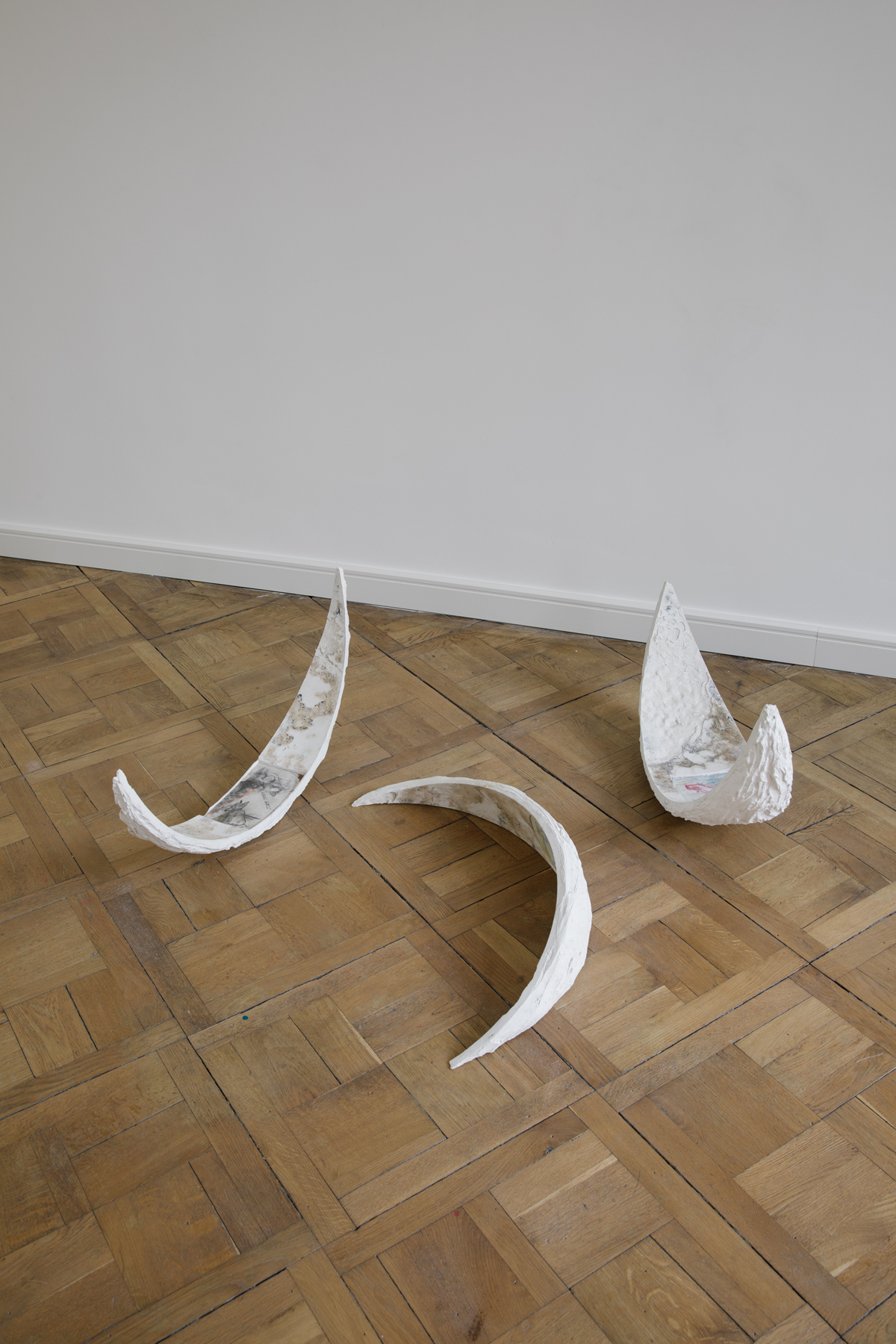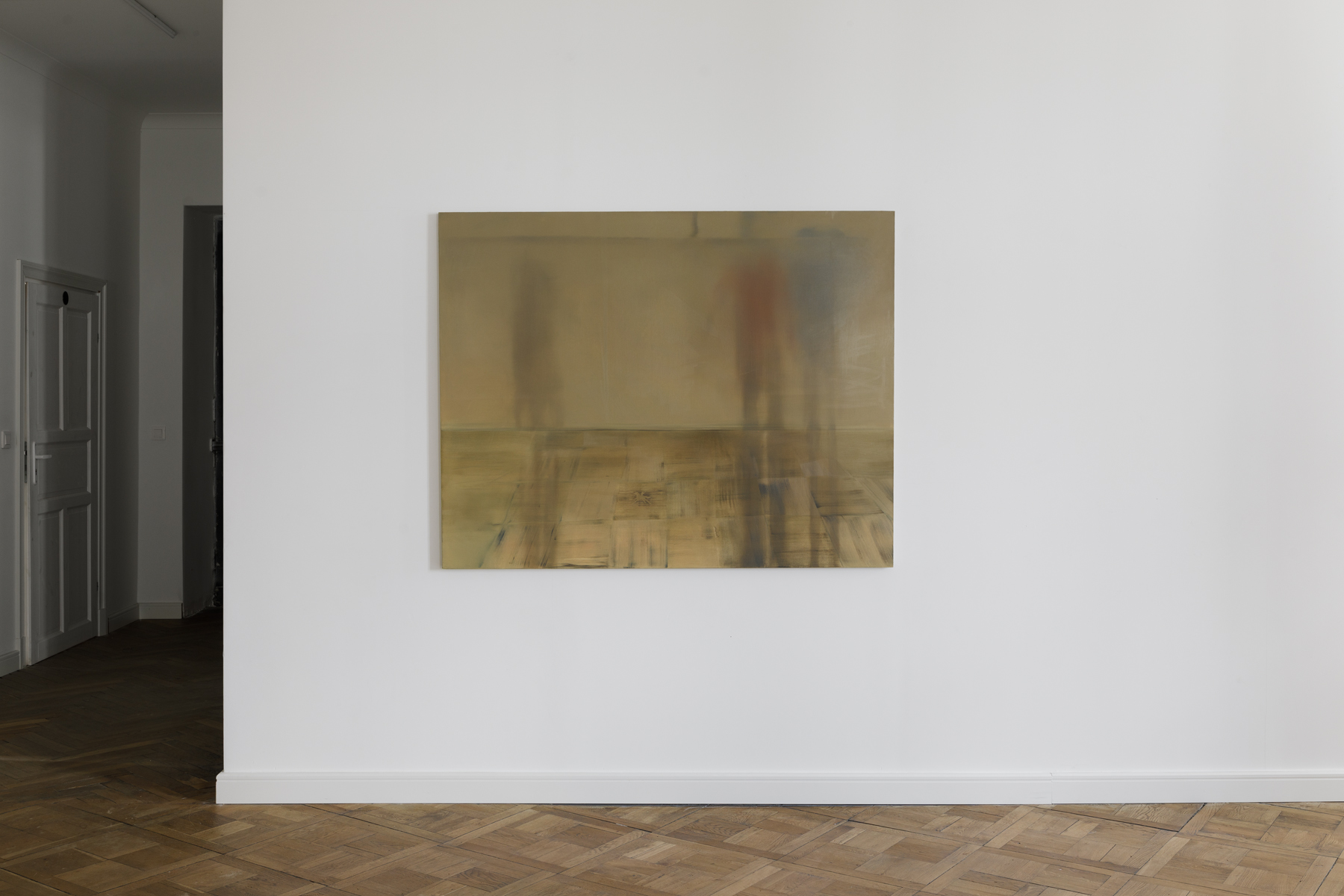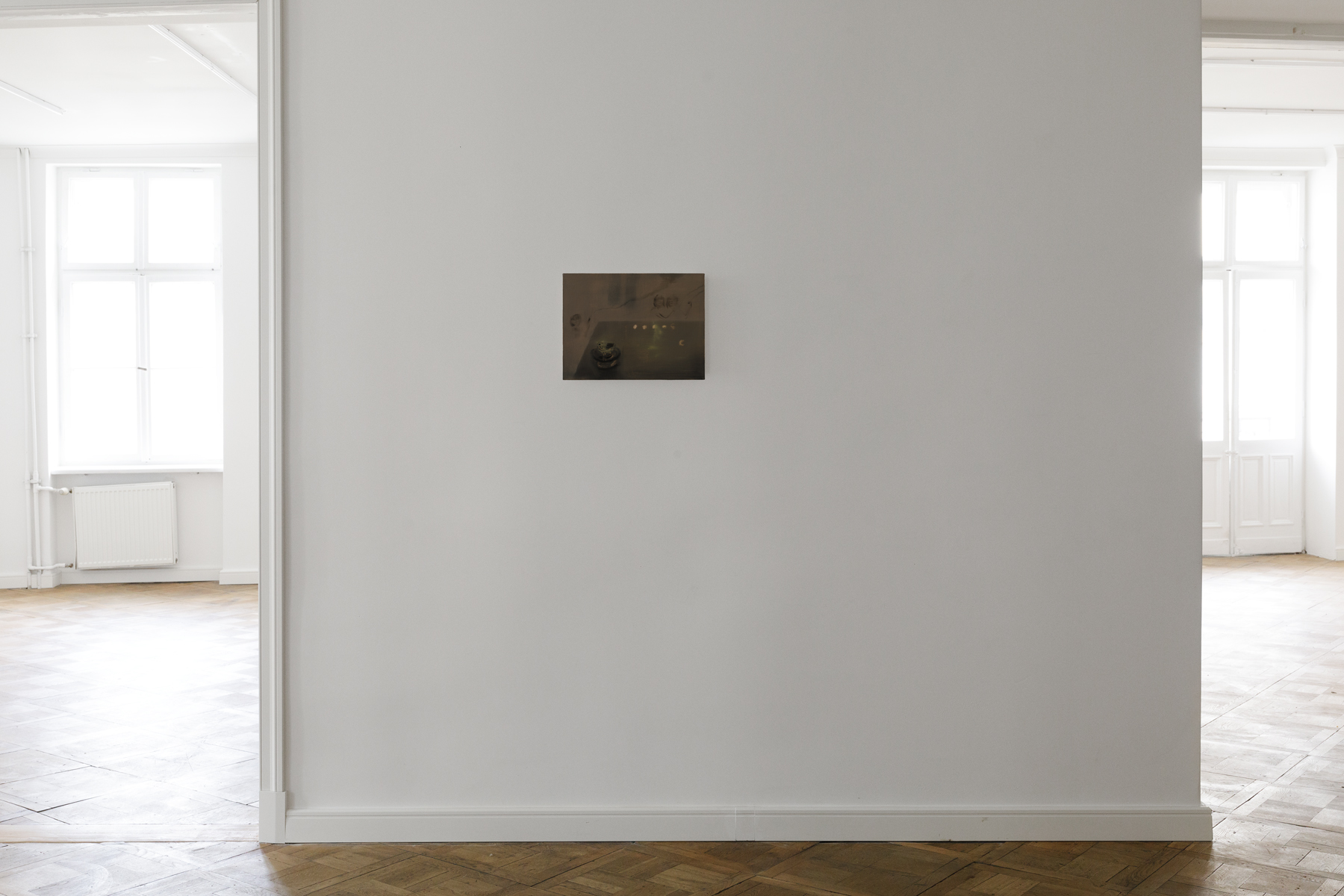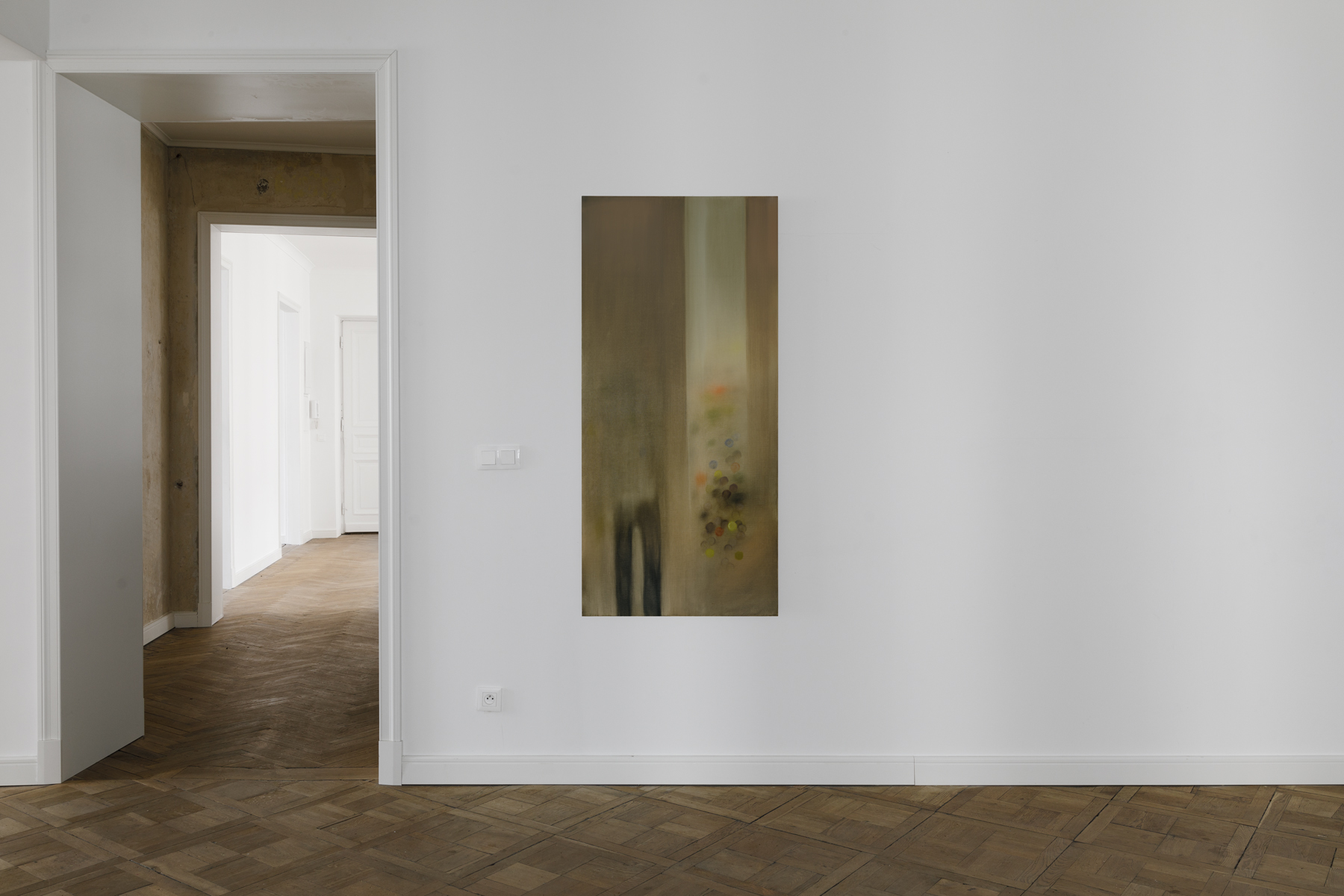Floor Level
12/06/2025 - 26/07/2025
Lulù Nuti, Karolina Szwed
The floor level is the one below acceptable. It is associated not only with lying down, but also with stumbling and falling, which we recognise as weakness and failure. The artists approach the title and their work with irony. They use it as a way to play out their sculptures and paintings. They are interested in the mistakes and errors that can inspire. So are low things, situations that are absolutely unspectacular or bitterly funny. Ultimately, the floor level is the perspective of a being not yet fully formed, but already registering its surroundings with its entire body, before the first step or direction appears. The world seen in this way is not yet compartmentalised, and everything within reach is important. The sensitivity in question here has something of a childlike trust and awareness.
Lulù Nuti treats matter with tenderness. Her sculptures, although made from industrial materials, from elements abandoned in earlier projects, do not position themselves in opposition to the body – on the contrary, they respond to its impulses. Her works are not about triumphing over material but about coexisting with it, with the same ambivalence we feel in early life when exploring reality, teetering between curiosity and fear. The impossibility of creating something “perfect” becomes the starting point. Cracks are not flaws but records of the process. Nuti’s works are material traces of personal and collective catastrophes. From plaster celestial bodies to childhood drawings encased in cement, her sculptures defy linear narratives of time and memory—instead, these elements recur and shape the present. Art becomes a tool for attentiveness, introspection, and empathetic observation.
Karolina Szwed’s paintings are hazy, like childhood memories, when the world felt ambiguous and slightly too big. She attempts to capture fleeting memories that begin to blur or change their meaning. The artist also employs irony, primarily as a defence mechanism—a way to soften excessive seriousness and create distance from drama. Her painting seems suspended mid-gesture, mid-sentence. Szwed avoids literalness; instead, she offers works that are restrained and far from decorative. They play with expectations and reflect on power and the experience of girlhood, even though it has been institutionalized into a form of “female strength.” The artist draws attention to the mechanisms that shape contemporary reality, one that makes it difficult to move beyond stereotype.
The artists talk about an experience which, due to ambivalent associations in the Polish translation, we consciously refer to as English girlhood, which better reflects the ambiguity of the term. In Nuti and Szwed’s understanding, it is much more than a stage of life – it is a field of daily negotiation of one’s own identity in the face of social expectations, oppressive norms and dominant narratives. They respond to the situation of the commercialisation of this experience and its transformation into an aesthetic that is easily consumed. At the same time, they emphasise that this state need not be a transitional stage, but a fully-fledged form of existence that does not need to be outgrown. A recurring theme in their work is that of the power of vulnerability – a notion that inverts established narratives about what needs to be shown to be sufficient. Grappling with the concept of strength, which today one must not only have but also know how to sell, leads to the question of how to salvage authenticity and personal survival before they are absorbed by the logic of productivity and career.
curator: Katarzyna Piskorz
